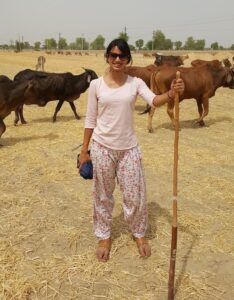 Can you imagine a fashionable professional golfer in the Indian and US circuits sullying her hands in cow dung and slushy mud, earth, and soil of her organic farm – complete with cattle, poultry, vegetables, and fruits farm?
Can you imagine a fashionable professional golfer in the Indian and US circuits sullying her hands in cow dung and slushy mud, earth, and soil of her organic farm – complete with cattle, poultry, vegetables, and fruits farm?
It may be difficult, but this is exactly what Vaishavi Sinha Bhasin, an economist by training from Purdue University in Indiana, a professional golfer returned to India for good and has planted herself as cattle raising agripreneur with her organic farm located in Noida, Uttar Pradesh.
After spending seven years in the US, for studies and a career as a golfer, Vaishavi returned home for good. It was her father’s advice to “something different” that set her thinking. Concerned over impurities in farm products and milk, she chose dairy and farming as her calling, in 2017 and she has not looked back since then.
“I used to live in wonderful places, move in elite circles, fashionable ambience, wealthy families in the United States during my seven-year stay there for studies and playing. It was an entirely different world, but what I do today is something that gives me immense satisfaction,” she said.
Personal satisfaction aside, getting into agriculture and dairy farming startup – Shoonya Farms – for her, is a well-considered, hardcore business decision she made in 2017. Today her farm has 100 cows, produces 350lt milk per day. We have over 40 varieties of fruit trees and 30 plus varieties of vegetables at the farm. Marketing is mostly direct but now we’ve entered into the ecommerce space through our website and other platforms. Word of mouth has helped us till now,” she said.
“My farm is set up in a place where the soil is extremely infertile, but despite that, we’re doing great,” she said.
“Agriculture will be the next big thing,” Vaishavi declares with all knowledge, experience, and experiences in the US and India at her command. There is a huge potential and there is so much scope for many players in the agriculture sector that is witnessing many changes. For example, opportunities exist aplenty for people dealing in logistics, technology, structured farm management arena, and the like.
All this, within the first few minutes of conversation with her, you realize that she has mastered economics, science, and practicalities involved in the chemicals-free, pesticides-free organic farming, as has been done for centuries in the country. She told Tricity Scoop that at first, it was difficult, as she had to learn everything from scratch. Besides, procuring pure Indian breed cows for her farm was the next big challenge.
Her greatest learning that can be a lesson for anyone wanting to start a similar farm – avoid well – known cattle trading centers.
“Just pick up your vehicle, drive down to obscure villages where farmers keep the cows for themselves. Never go to the ‘branded’ or places well-known for cattle trade for purchasing high-quality Indian breeds like Gir, Sahiwal, Tharparkar, and Haryanavi. It will take longer time, more travel and the effort will be worth it as villagers will guide you to the right person,” she said recalling early days.
“I was very clear what I wanted to do. I wanted to run a goshala with pure Indian breeds, attached to a farm because there is an increasing demand for pure cow milk and chemicals free vegetables and fruits,” she said. Nowadays, there is a growing demand for organic food and pure milk following the realization of all the harmful chemicals and pesticides that go into their production.
A visit to her farm is an experience in itself for the city-dwellers who have never seen one.
But they would be mistaken if they expect all farms to be like Shoonya, where cleanliness, neatness, and well-organized cow sheds, feed trays, and automatic water tanks for the cows are standard operating procedures. Ethical cow treatment is paramount. “Yes, we have many visitors, who want to learn how our model works. I am only too glad to help anyone out,” Vaishavi said. In fact, youngsters should get into farming and bring about the change that it so badly needs.
But why enter a profession that has seen several suicides and is seen to be an unviable proposition? “To change precisely that,” pat comes Vaishavi’s reply.
For more details visit www.shoonyafarms.com

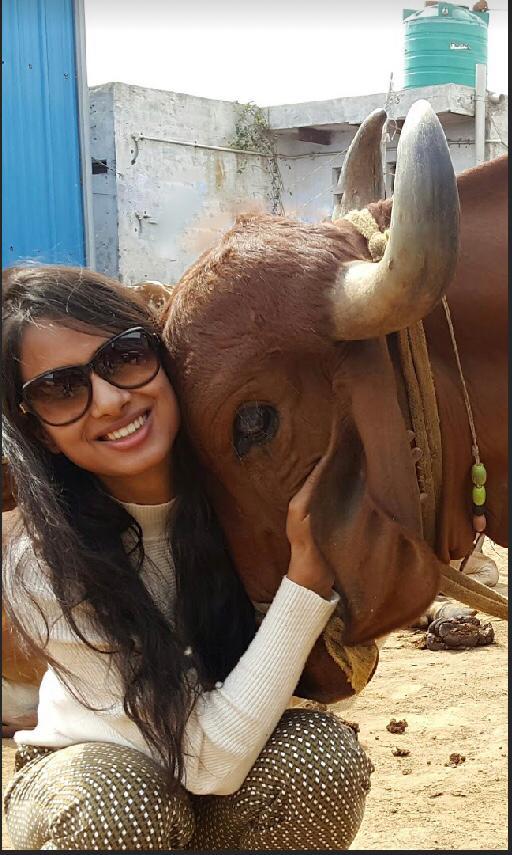
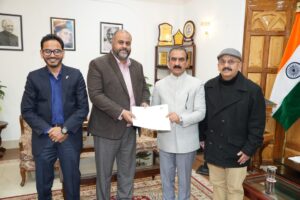
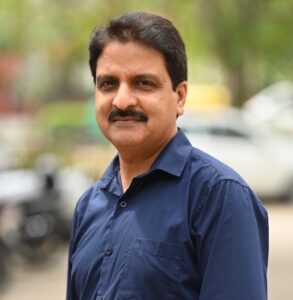
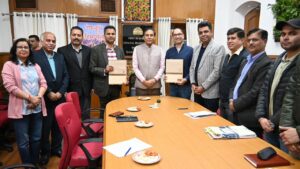
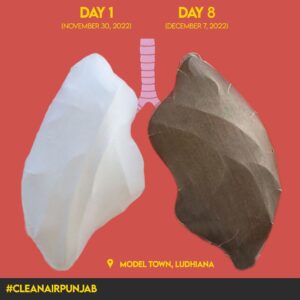

Comments are closed.